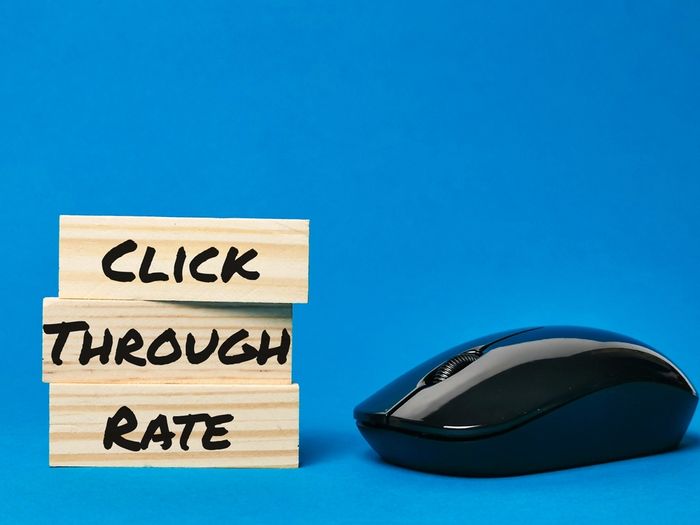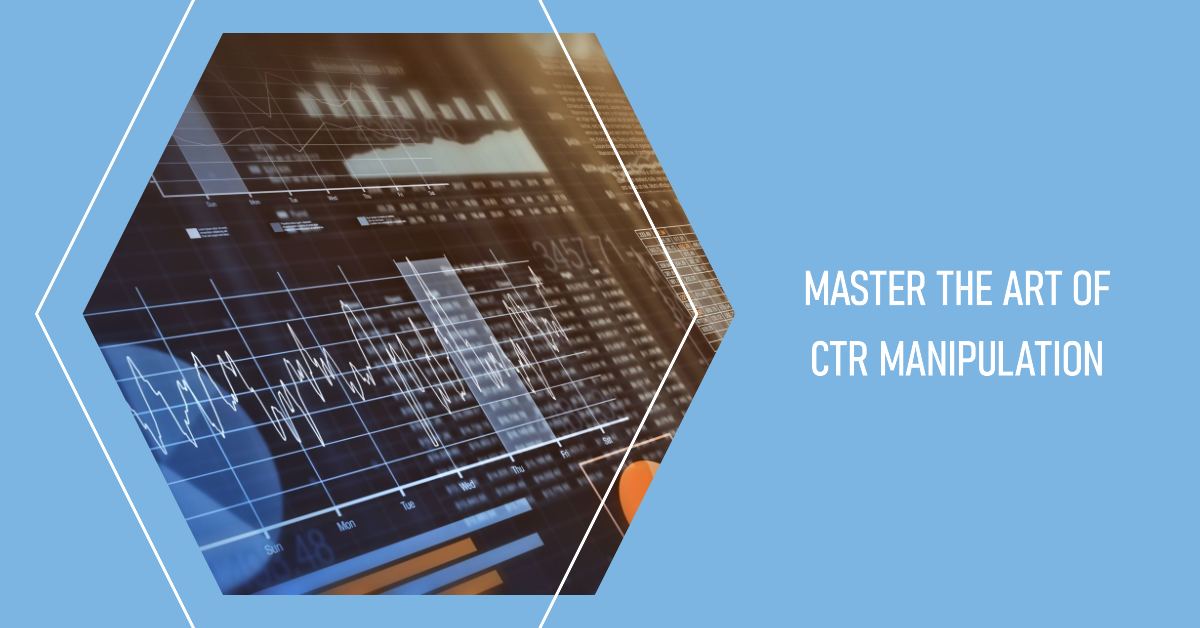LinkDaddy CTR Manipulation: Professional Services to Boost Your Click-Through Rates
LinkDaddy CTR Manipulation: Professional Services to Boost Your Click-Through Rates
Blog Article
Checking Out the Relationship In Between CTR Manipulation Providers and User Habits
In the realm of digital marketing, the influence of click-through price (CTR) control solutions on user behavior remains a complex and intriguing topic. By studying the elaborate relationship in between CTR control services and customer behavior, fascinating insights emerge that might reshape our understanding of digital marketing techniques and their effects on customers.
Influence of CTR Adjustment on Habits
Assessing the impact of Click-Through Rate (CTR) manipulation on customer habits reveals crucial understandings into the dynamics of online involvement. CTR adjustment includes artificially blowing up the number of clicks on a certain web link or ad to deceive customers and online search engine. This practice can bring about a distorted understanding of a webpage's appeal or significance, ultimately impacting individual behavior.

In addition, CTR control can skew the data utilized by formulas to personalize individual experiences. This can result in individuals being served web content that does not line up with their choices or interests, eventually bring about a decline in user fulfillment and involvement. Understanding the effect of CTR control on individual habits is vital for keeping openness and trust in online communications.
Customer Involvement With Controlled CTR
Individual interaction with adjusted CTR information frequently causes manipulated perceptions of online material appeal and significance. When individuals engage with web content based upon unnaturally filled with air Click-Through Fees (CTR), they might think that particular details, items, or solutions are extra popular or trustworthy than they actually are. This can result in customers choosing based upon deceptive data, leading to potentially unfavorable outcomes.
Interaction metrics like likes, shares, comments, and time spent on a web page are typically influenced by CTR manipulation. Users might be a lot more inclined to involve with material that shows up to have higher engagement prices, better continuing the cycle of skewed perceptions. Because of this, web content designers and advertisers may focus on creating content that generates high CTR instead of focusing on creating truly useful and relevant product.

Mental Impacts of CTR Manipulation

Moreover, the psychological effects of CTR manipulation can also show up in modified decision-making processes. Users may be extra likely to click material entirely based upon its viewed appeal, as opposed to its actual worth or relevance to their needs. This behavioral shift can result in a surface engagement with online web content, where customers might forget top notch but less preferred offerings in support of those with synthetically improved CTRs.
In significance, the mental ramifications of CTR control highlight the significance of keeping transparency and authenticity in on-line interactions to cultivate authentic customer engagement and trust fund.
Ethical Factors To Consider in CTR Control
Considering the honest implications of controling click-through prices (CTR) in online platforms is necessary for maintaining stability and trust fund within the digital ecological community. CTR manipulation increases concerns concerning tricking users, misshaping information analytics, and compromising the integrity of online material. One significant moral consideration is the prospective influence on customer autonomy and decision-making. By synthetically blowing up CTR, users may be misguided right into clicking web links or ads they would not have selected otherwise, bring about a disingenuous online experience. Check This Out Furthermore, CTR control can skew the performance metrics that services count on to make calculated choices, eventually impacting market competition and customer trust fund.
Another ethical facet to consider is the justness of controling CTR to acquire an unfair benefit over rivals. Participating in such techniques not only breaks concepts of justice however also threatens the depend on that customers put in online systems. It is crucial for services and digital marketing professionals to support honest standards in their methods to make sure openness, reputation, and long-term sustainability in the on-line environment.
Ramifications for Digital Marketing
With the increasing reliance on electronic platforms for advertising and marketing objectives, the method of adjusting click-through rates (CTR) poses considerable implications for the efficiency and integrity of electronic advertising approaches. CTR control can bring about skewed information analytics, deceiving marketers into believing that their projects are performing better than they really are. This can cause misallocation of resources, with companies purchasing underperforming approaches based on falsified CTRs. When customers realize that CTRs have been controlled, it can deteriorate trust fund in the brand, leading my review here to long-term unfavorable effects for customer loyalty and brand track record.
In addition, using CTR adjustment solutions can produce an unreasonable competitive landscape, where firms that take part in such methods acquire a man-made advantage over those that abide by moral advertising requirements. This can stifle innovation and creativity in electronic advertising and marketing, as success ends up being more about adjustment methods than providing genuine value to customers. Ultimately, the implications of CTR adjustment for digital marketing expand past short-term gains, influencing the general sustainability and credibility of advertising efforts in the electronic realm.
Final Thought
To conclude, the connection between CTR manipulation services and individual behavior is complex and complex. The impact of CTR adjustment on habits, user involvement with controlled CTR, mental effects, honest considerations, and effects for digital advertising and marketing all contribute in shaping this relationship. Recognizing these dynamics is essential for online marketers and researchers alike in order to browse the honest implications and make the most of the performance of their electronic marketing techniques.
Report this page